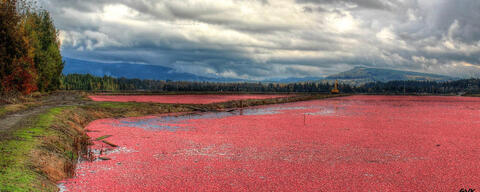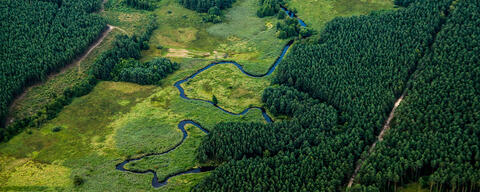Welcome
The Yale Applied Science Synthesis Program (YASSP) is an initiative of The Forest School at the Yale School of the Environment and the Yale Center for Natural Carbon Capture.
The program connects academic researchers, policymakers, and those managing lands to answer applied questions about how land management decisions affect the services provided by forests, croplands, wetlands, rangelands, and grasslands.
We work with for- and not-for-profit partners that need to make decisions on sustainable land management practices. Our work focuses on the regional context within which local management decisions are made, to help maximize ecosystem benefits provided by these land resources, such as carbon storage, sustainable food production, and biodiversity. Our mission reflects the founding principles of The Forest School, which was first established in 1900, to develop applied scientific knowledge to guide effective stewardship of the nation’s forests. Core support for our work is funded by the Yale Center for Natural Carbon Capture and the Yale School of the Environment, including The Forest School where the program is housed. Additional project funding and data support has come through the Ecosystem Services Market Consortium, Environmental Defense Fund, Firuza Foundation, General Mills, Hudson Carbon, Lawrence Livermore National Lab, Climate Works Foundation, and Ocean Spray, Inc.
Highlights
Scientists recommend updates to forest carbon protocols, including strengthening reversal risk assessments and periodic updates to forest carbon baselines
Dr. Sara Kuebbing served on a team of leading forest scientists in the evaluation of 20 forest carbon credit protocols. The team scored the protocols on robustness related to the likelihood that the protocol standards as written would result in consistent and accurate accounts of carbon storage via three forest-based climate solutions: improved forest management, afforestation/reforestation, and avoided planned forest conversion. The findings show that updates to the standards are necessary to improve carbon credit quality and accuracy. You can read the full article here and the YSE Q&A with Sara here.
Scientists call attention to forest-based agroforestry and its potential to support forest ecosystems, rural livelihoods, and climate mitigation
YASSP-affiliated researcher, Karam Sheban and his co-authors describe the often overlooked benefits of forest-based agroforestry (FAF), outlining examples of FAF and clarifying its potential impact and, finally, making a call to action to support FAF policy and fundings. You can read the paper here and a Mongabay feature on the paper here.
Researchers make a call for improved evidence of climate mitigation in agricultural soil carbon
YASSP researchers and partners at Environmental Defense Fund make the case that project-scale empirical data are required to test, support, and advance the ability of such scaling approaches to estimate real emission reductions and removals. This work builds on Dr. Mark Bradford et al.’s evaluation of the ‘infeasibility assumption’ that we cannot empirically measure change in soil carbon stocks using high-density, within-field, sampling data from 45 cropland fields inventoried for soil carbon published in Geoderma. Download the White Paper here. See YSE’s author Q&A profile here.



